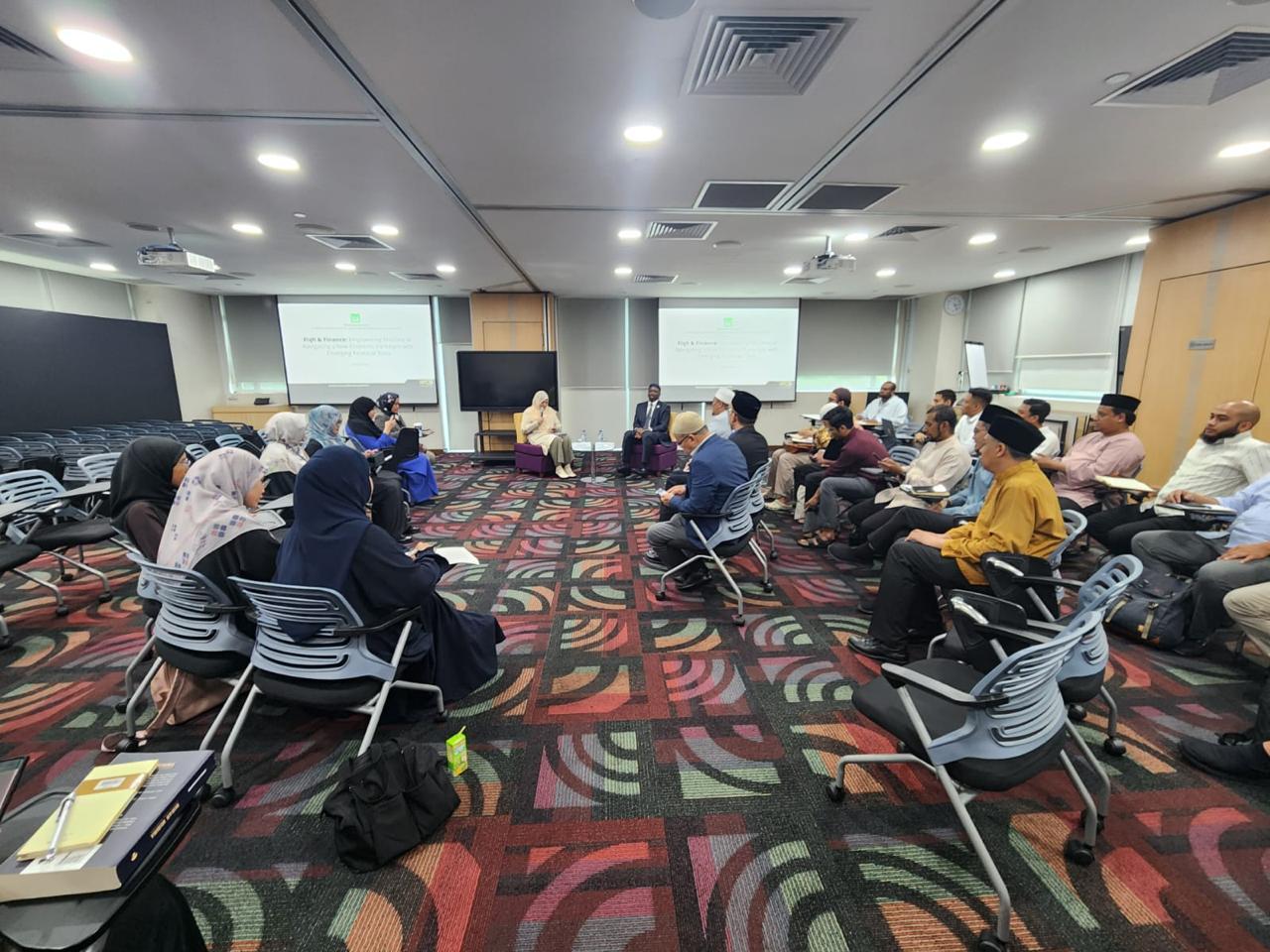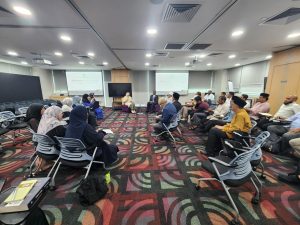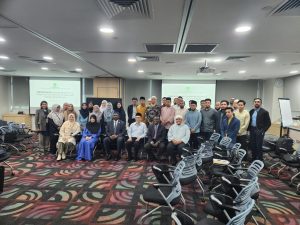
As part of the efforts of the International Islamic Fiqh Academy to engage with educational institutions and Fiqh Academies regionally and international in Muslim countries and within Muslim communities, its Secretary General H.E. Dato’ Professor Koutoub Moustapha Sano and his delegation visited the Republic of Singapore between 31st January and 04th February 2024 at the kind attention of Islamic Council of Singapore (MUIS).
Upon his arrival, H.E. Professor Sano was received by the Mufti of Singapore, Deputy Muftis of Singapore and several officials from both MUIS and the Office of the Mufti.
In his first official meeting with the officials of MUIS on 01st February, Professor Sano was received by the Deputy Chief Executive Office of MUIS, Dr. Albakri Ahamd, Dr. Muhammad Hanan Deputy Mufti of Singapore, Dr. Murad Arif, Deputy Mufti, Dr. Tuty Rahan Mostarom, Head Higher Education and Research at MUIS, Ms. Farah Aljuniad, Director of Education and Research at MUIS and other officials. The Muftis and officials of MUIS expressed their delight at the visit of Professor Sano reiterating the extensive knowledge of their honourable guest Professor Sano and the benefit they can gain from his vast expertise in Islamic law and particularly Islamic finance as Singaporean Muslim community is exploring new Islamic products and tools for investment to further bolster the role of the community in playing a dynamic and proactive part in the socio-economic and socio-political development in Singapore.
During the Roundtable titled: Fiqh and Finance: Empowering Muslims in Navigating a New Economic Paradigm with Emerging Financial Tools chaired by Ms. Farah Aljuniad, Director of Education and Research at MUIS, Professor Sano highlighted the fact that The Islamic financial instruments if utilized well, they can be vital in the drive towards sustainable development focusing on social development, political development, economic development and environmental development. Professor added: ” Muslim thought produced by Muslim minds aiming to achieve a link between the revelation and the changing and evolving reality was influenced by the social and cultural circumstances and the apparent economic and political conditions”. Thus, Professor Sano argued that T Fiqh and fatwas should be developed to empower Muslim societies and communities for alleviation of poverty, social inclusion and combating ignorance and promoting education, among others.
In the context of Singapore, Professor Sano emphasised that Singapore as a multi-religious and multi-ethnic country, scholars, Ulama and policy makers alike should create the conducive environment that peace thrives. He stressed the need to develop that discourse and narrative to promote harmony, social cohesion and peaceful coexistence. There is a need for a group of well-established scholars who meet the conditions of rightful Ijtihad, which makes their opinion accepted and considered. He also stressed that the predominance of complexity and entanglement over many contemporary financial calamities and developments necessitates a collective Ijtihad in which Shariah jurists integrate with economists and finance scholars in order to control the appropriate Shariah rulings tightly and soberly for these calamities and developments through which the objectives of Shariah are achieved.
Finally, and during the question-and-answer session, participants raised important questions with regards to governance, social justice, the interpretation of the text and its contextualization for clarification and elaboration by Professor Sano.
The meeting was attended by Ms. Sara Amjad Bedewi Director of Family, Women, Childhood and Elderly Department and Dr. Alhagi Manta Drammeh, Head of International Cooperation and External Relations at the Academy.
Read Also
Lastest










